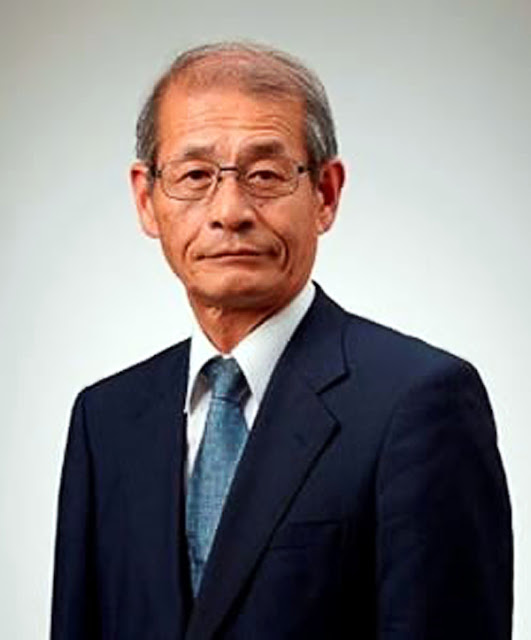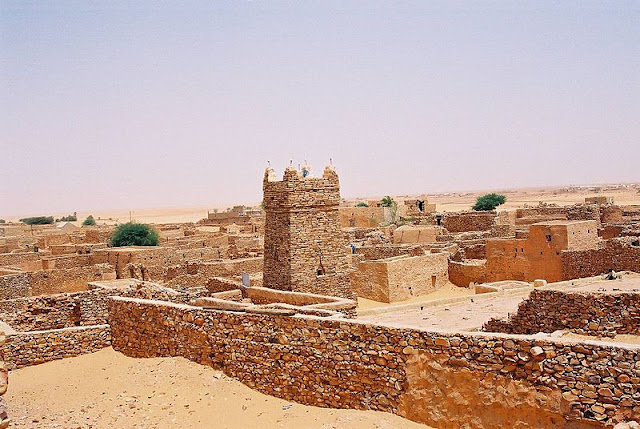Akira Yoshino shares the Nobel Prize in Chemistry 2019 for “for the development of lithium-ion batteries”
Hello, I realize this is old news now, I meant to post this earlier but got sidetracked and also wanted to do more in my series on the history of science and technology in East Asia. Several times now I'd been derided by those who've claimed that East Asians have not achieved great feats in the history of science and technology, and claimed that what I espoused were simply "myths" despite all of the evidence I've presented, some people would actually not accept any evidence whatsoever.
In any case one of the examples that I've used was that of Akira Yoshino, which many people have never heard of, though I have with my science background. He was instrumental in making the first viable prototype of the Lithium-Ion battery. Imagine how important it is nowadays, think of all of the smartphones, and laptops that are powered by this important technology, and so much more. This truly was a groundbreaking innovation, and it seems that now the Nobel committee seems to agree with me to the point that they've decided to include him as one of the three Nobel Prize recipients.
Below are excerpts from an article in the Japan Times:
https://www.japantimes.co.jp/news/2019/11/12/national/science-health/akira-yoshino-nobel-prize-lithium-ion-batteries-environment/#.XnbXHy0ZO00
Akira Yoshino, winner of Nobel for work on lithium-ion batteries, sees tech as environmental fix
NAGOYA – Midway through the 1800s, the English scientist Michael Faraday had the forethought to deliver a series of lectures on an object that was commonplace in Victorian Britain, as a way to get young minds hooked on science.
He chose a candle.
A century later, a newly appointed elementary school teacher in Osaka familiar with Faraday’s book “The Chemical History of a Candle” introduced it to her class.
One of her students was Akira Yoshino.
As Faraday predicted, and as Yoshino’s astute teacher surely understood, “there is no more open door by which you can enter into the study of science, than by considering the physical phenomena of a candle.”
Yoshino, 71, who along with Briton Stanley Whittingham and American John Goodenough was awarded this year’s Nobel Prize in chemistry for the development of lithium-ion batteries, often cites Faraday’s book as the reason why he pursued a career in chemistry and scientific inquiry, first as a student at Kyoto University and then at Asahi Kasei, where he has spent his entire career as a research scientist.
(snip)
The paper, by fellow Nobel laureate Goodenough, set Yoshino on a new path that resulted in the invention of the lithium-ion battery — a rechargeable battery that is now ubiquitous.
Yoshino’s breakthrough was to fill the anode, at one end of the battery, with a carbon-based material, and put lithium cobalt oxide in the cathode, at the other end. By 1985, Yoshino was ready to patent the prototype of the first commercially viable lithium-ion battery.
The batteries now power everything from smartphones and laptops to digital cameras and electric bicycles. They’re used to power the next generation of electric vehicles such as Nissan Motor Co.’s Leaf and Tesla Inc.’s lineup of cars, and even new shinkansen trains use lithium-ion batteries as backup energy storage in case of emergency. It’s doubtful the era of the portable gadget would have gotten off the ground if Yoshino hadn’t packaged science and technology into the battery that keeps on giving.
(snip)
Yoshino said Japan, which is increasing its reliance on coal energy, should shift more to renewable energy. And lithium-ion batteries, instrumental and essential in storing power, can help Japan and other countries rely on more renewable sources.
“In this sense, the lithium-ion battery plays an important role since it can store surplus energy (from renewable sources) and supply it when necessary. Thus, as a result, the development of the lithium-ion battery will help the growth of renewable energy.”
(snip)
Teaching, in the formal sense, is relatively new for Yoshino. He was appointed professor at Meijo University in 2017, where he teaches alongside Isamu Akasaki, a 2014 Nobel laureate physicist.
When asked what advice he would have for parents in guiding young learners, Yoshino’s prescription is simple: Encourage, don’t push.
(snip)
-----------------------------------------------------------------------------------
And there you have it one of the engineers that I've been posting about has now won the Nobel Prize in Chemistry. What else can I say? Please stay tuned here, and I will introduce more of the great innovations that have come from Japan in a long series.



Comments
Post a Comment